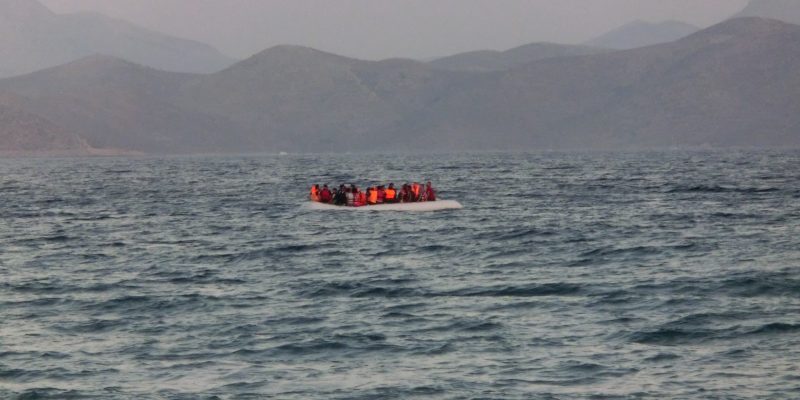1. Mediterranean, the senseless attack against the NGOs saving lives at sea
The absurd controversy continues over the allegations that humanitarian organisations carrying search and rescue operations in the Mediterranean are contributing to the rising numbers of unsafe boats and deaths of migrants at sea. Read Annalisa Camilli’s article in Internazionale on the baseless accusations to the people who are working every day to save lives at sea.
2. Mediterranean, why blame the NGOs for their presence, and not the EU for its absence?
So, as the number of deaths at sea continues to rise – already a thousand in 2017 – humanitarian organisations are still taking the blame for being there, when the EU and its member states should be blamed for their unforgivable absence. Read what Lizzie Dearden wrote about this tragic irony in the Independent.
3. Mediterranean, diary of a rescue worker
What is life really like onboard one of the many search and rescue ship operating in the Mediterranean? Read Ed Taylor’s report in Refugees Deeply.
4. Italy, Ventimiglia backpedals on crimes of solidarity
The mayor’s order prohibiting the distribution of food to migrants has been revoked in Ventimiglia. The decision follows the protests from civil society groups, who had denounced “feeding the hungry has always been the fundamental act of solidarity, an act that communities of equals are built upon. To punish solidarity or forbid people to practice it is to endanger the basic principles and values of human civilisation”. But the city’s authorities have made no admission of guilt for such a choice.
Read Pietro Barabino’s article in La Repubblica and Thomas Mackinson’s piece in Il Fatto Quotidiano (also revisit Nando Sigona’s op-ed on the spread of crimes of solidarity and our own in-depth analysis on the latest cases).
5. Italy, the strange case of the Chinese asylum seekers
There is a growing number of Chinese nationals who are seeking asylum in our country. Who and how many are they, and what is behind this phenomenon? Read Luca Rinaldi’s article in the Milan edition of the Corriere della Sera (and revisit our own two-part special – context e stories – by Lorenzo Bagnoli).
6. Calais, six months on
The demolition of the Calais “jungle” has – obviously – not relieved the humanitarian emergency in the slightest: a new report by Refugee Rights Data documents episodes of everyday brutality and abuse to migrants at the hands of officers. Read May Bulman’s article in the Independent.
7. A one-way trip from Denmark to Afghanistan
Copenhagen is still forcibly returning Afghan asylum seekers to Kabul. Danish authorities are relentless in their effort to send vulnerable people such as the elderly and the ill back to a hostile, war-torn country. Read Dan Bilefsky and Martin Selsoe Sorensen’ article in the New York Times.
8. Europe, the human costs of EU policies for unaccompanied foreign minors
The hardening European policies on immigration and asylum are coming at a high price, starting with refugee children who are finding it virtually impossible to reunite with their families. Read Sara Elizabeth Williams and Holly Young’s article in Irin News.
9. How a warming planet drives human migration
Last Saturday marked World Earth Day. What better occasion to bring attention to an issue that has been ignored for too long: the impact of climate change on forced migration. Read Jessica Benko’s interactive piece in the New York Times (also revisit the op-ed by the great sociologist Saskia Sassen and the one by Oxford University students Rebecca Buxton and Theophilus Kweka in Open Migration, as well the explainer by our own Corallina Lopez Curzi in RightsInfo).
10. Immigration is good for long-term economic growth
We conclude with an article by professor Vincenzo Bove and researcher Leandro Elia in the Harvard Business Review which illustrates the positive relationship between immigration and economic growth (also read our own in-depth analyses on the great contribution that the migrants’ jobs and businesses are making to the Italian economy and pensions).
Translation by Francesco Graziosi.
Header photo: International Federation of Red Cross (CC BY-NC-ND 2.0).









